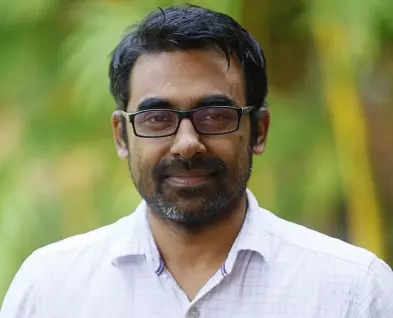IIM Visakhapatnam researchers develop machine learning-based MMR dashboard – Times of India
Speaking to ToI, Dr Shivshanker Singh Patel, who created the dashboard and heads the Inter-disciplinary Decision Science and Analytics Lab (IDeAL) at IIM Vizag, said that maternal health is a pressing public health concern globally, especially in developing countries. “In a country like India, where the population is vast, significant disparities in maternal health service utilisation and maternal mortality exist within and across states. A more targeted, precision healthcare strategy is necessary to combat this challenge effectively. The DSS runs based on nearly 30-35 variables such as medical insurance, agroclimatic conditions, accessibility to healthcare, topography, nutrition, health infrastructure, literacy levels, etc.,” said Dr Shivshanker Singh Patel.
Dr Patel added that they employed various explainable AI models to generate insights and recommendations by examining a comprehensive list of factors associated with MMR. “One of the models employed are CART heuristics to categorise the districts based on lower and higher MMR classes. Another notable model utilised in this is Shapley additive explanations, incorporating machine learning techniques such as ‘support vector machines’, ‘artificial neural networks’, boosting, and random forest to identify regions with varying MMR levels. Additionally, an ‘explainable boosting machine’ was employed, and the results were meticulously compared to provide valuable policy suggestions,” said the faculty in the decision science area at IIM Vizag.
“Policymakers can tailor their interventions and policies to the specific needs of regions by taking the precise recommendations and insights at the administrative unit level into consideration. This can consequently improve maternal health outcomes. The integration of precision healthcare strategies and explainable machine learning techniques presents a promising opportunity to address the complexities of maternal health disparities. With a focus on personalised interventions and evidence-based policymaking, the field can make significant strides in improving maternal health and reducing maternal mortality rates,” added Dr Shivshanker Singh Patel, who has more than a decade of experience in machine learning.
Key Highlights
• IIM Visakhapatnam set up an ‘Interdisciplinary Decision Science and Analytics Lab’ (IDeAL).
• IDeAL is a Centre of Excellence dedicated to inter-disciplinary research.
• The first dashboard that the IDeAL produced was related to the Covid-19 pandemic.
• Now, researchers at IDeAL developed the dashboard/decision support system related to maternal mortality.
• The MMR dashboard took advantage of explainable machine learning models on NFHS4 and NFHS5 and HMIS data.
• The dashboard suggests healthcare interventions specific to administrative units.
• It will take various factors related to the particular area into consideration before arriving at these interventions.
• The factors can be healthcare infra, topography, agroclimatic conditions, insurance, etc.
• The policymakers can utilise the DSS to tweak the ongoing or tailor their targeted interventions.
window.TimesApps = window.TimesApps || {}; var TimesApps = window.TimesApps; TimesApps.toiPlusEvents = function(config) { var isConfigAvailable = "toiplus_site_settings" in f && "isFBCampaignActive" in f.toiplus_site_settings && "isGoogleCampaignActive" in f.toiplus_site_settings; var isPrimeUser = window.isPrime; if (isConfigAvailable && !isPrimeUser) { loadGtagEvents(f.toiplus_site_settings.isGoogleCampaignActive); loadFBEvents(f.toiplus_site_settings.isFBCampaignActive); } else { var JarvisUrl="https://jarvis.indiatimes.com/v1/feeds/toi_plus/site_settings/643526e21443833f0c454615?db_env=published"; window.getFromClient(JarvisUrl, function(config){ if (config) { loadGtagEvents(config?.isGoogleCampaignActive); loadFBEvents(config?.isFBCampaignActive); } }) } }; })( window, document, 'script', );
For all the latest Education News Click Here
For the latest news and updates, follow us on Google News.


